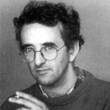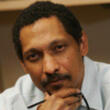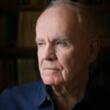When we cease to understand the world
Description
More Details
9781681375670
9781666527667
Table of Contents
From the Book
Similar Titles From NoveList
Similar Authors From NoveList
Published Reviews
Publisher's Weekly Review
Reading like an episodic digest, Chilean writer Labatut's stylish English-language debut offers an embellished, heretical, and thoroughly engrossing account of the personalities and creative madness that gave rise to some of the 20th century's greatest scientific discoveries. Labatut begins with Prussian blue, the first synthetic pigment, created by alchemist Johann Conrad Dippel, and links it to the evolution of modern industrial poisons and the life of WWI German chemist Fritz Haber. Labatut then follows Alexander Grothendieck, the reclusive French mathematician whose political and spiritual inclinations led him to a life of monklike sequestration, before dramatizing the long battle between Werner Heisenberg and Erwin Schrödinger over the future of quantum physics. Labatut, like his single-minded, sometimes nearly demented protagonists, is interested in the underlying nature of things; his subject is the all-consuming human drive to discover, and the danger therein, which he explores with literary but never pretentious prose, impressively translated by West (on Prussian blue: "something in the colour's chemical structure invoked violence: a fault, a shadow, an existential stain passed down from those experiments in which the alchemist dismembered living animals to create it"). Hard to pin down and all the more enjoyable for it, this unique work is one to be savored. Agent: Constanza Martinez, Puentes Agency. (Sept.)
Kirkus Book Review
A belletristic exploration of the psychic and social tolls of 20th-century scientific innovation. The Nobel-winning chemist Fritz Haber discovered the process that made lifesaving nitrogen fertilizer but also facilitated chemical weapons that killed thousands in World War I. The physicist Karl Schwarzchild discovered the phenomena behind black holes but was haunted by the violence he witnessed during the same conflict. Alexander Grothendieck was a pioneering mathematician who became a troubled and eccentric recluse. The central figures in quantum physics were all stricken with physical and mental illnesses, as if they buckled under the weight of their research. The first novel published in English by Chilean author Labatut--which was a finalist for the 2021 International Booker Prize--is constructed out of vignettes on these figures, coolly undermining the notion of consistent forward scientific progress. Rather, he writes, we are "borne of the whims of a many-armed goddess toying with chance." Each section of the novel centers on one of the scientists in question, and in the early going Labatut comes off as more of a scientific historian than a novelist; the first chapter, on Haber, reads like a biographical sketch. But by the time we get to Erwin Schrödinger, Labatut's writing becomes more interior and complex as the physicist scrabbles for footing within the scientific community and Indian religious tradition, then descends into an obsession with an underage girl he meets at a sanatorium. Just as quantum physics threw the bedrock principles of the universe into question, the novel shifts further from fact, closing with a fully fictional coda. In structure and content, the novel is highly mannered, but Labatut's high-concept approach makes room for an emotional impact; you can feel the center stop holding as scientific triumphs become Pyrrhic victories. A somber counterweight to the usual lore about scientific genius. Copyright (c) Kirkus Reviews, used with permission.
Publishers Weekly Reviews
Reading like an episodic digest, Chilean writer Labatut's stylish English-language debut offers an embellished, heretical, and thoroughly engrossing account of the personalities and creative madness that gave rise to some of the 20th century's greatest scientific discoveries. Labatut begins with Prussian blue, the first synthetic pigment, created by alchemist Johann Conrad Dippel, and links it to the evolution of modern industrial poisons and the life of WWI German chemist Fritz Haber. Labatut then follows Alexander Grothendieck, the reclusive French mathematician whose political and spiritual inclinations led him to a life of monklike sequestration, before dramatizing the long battle between Werner Heisenberg and Erwin Schrödinger over the future of quantum physics. Labatut, like his single-minded, sometimes nearly demented protagonists, is interested in the underlying nature of things; his subject is the all-consuming human drive to discover, and the danger therein, which he explores with literary but never pretentious prose, impressively translated by West (on Prussian blue: "something in the colour's chemical structure invoked violence: a fault, a shadow, an existential stain passed down from those experiments in which the alchemist dismembered living animals to create it"). Hard to pin down and all the more enjoyable for it, this unique work is one to be savored. Agent: Constanza Martinez, Puentes Agency. (Sept.)
Copyright 2021 Publishers Weekly.

































